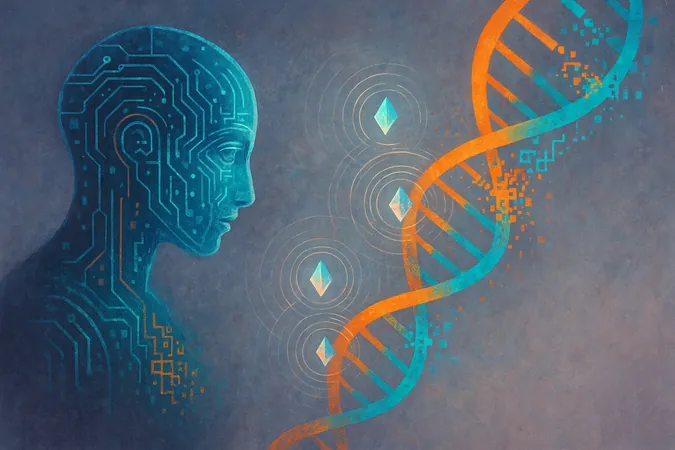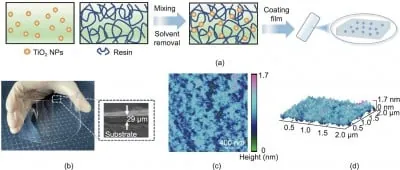
Revolutionizing Genetics: DeepMind Unveils AlphaGenome to Decode DNA Mutations
2025-06-25
Author: Sophie
Unlocking the Secrets of DNA with AI
In a groundbreaking announcement, Google DeepMind, the artificial intelligence powerhouse under Alphabet Inc., has launched AlphaGenome, a cutting-edge tool designed to predict how mutations in human DNA sequences affect gene regulation. This transformative model promises to reshape our understanding of genetics.
What is the Human Genome?
The human genome represents the complete set of DNA found in each cell, consisting of 23 pairs of chromosomes housed in the cell nucleus. This intricate blueprint not only dictates our physical growth and development but also governs our reactions to environmental changes and our vulnerability to various diseases.
AlphaGenome's Incredible Capabilities
AlphaGenome can analyze an astonishingly long DNA sequence—up to a million base pairs—rewriting the rules that previous models struggled with. It can predict thousands of molecular attributes, including where genes initiate and terminate across different tissues, the intricacies of gene splicing, and the quantity of proteins produced. Proteins, crucial for building tissues and facilitating enzymatic activities, play a vital role in our body's functions.
Harnessing Data for Deeper Insights
DeepMind's innovative model is powered by extensive scientific data drawn from major consortia like ENCODE and GTEx, which focus on gene regulation. With the ability to evaluate vast amounts of DNA at once, AlphaGenome excels in predicting the nuances of individual letters within the genetic code, crucial for understanding regulatory regions far from the originating gene.
Tackling Genetic Errors with Precision
This novel approach allows AlphaGenome to accurately predict potential 'splice' errors—flaws that can lead to rare genetic disorders such as spinal muscular atrophy and certain types of cystic fibrosis. Imagine DNA as the script of a training video with RNA as the actual footage. Just as an editor may mistakenly exclude vital scenes or add unnecessary segments, splice errors can disrupt the functionality of genes.
Setting New Benchmarks in Genomic Prediction
According to DeepMind, AlphaGenome achieves outstanding performance across a variety of genomic prediction tasks, including analyzing which DNA locations are closely situated, determining whether genetic variations will enhance or diminish gene expression, and predicting changes in splicing patterns. Dr. Caleb Lareau from Memorial Sloan Kettering Cancer Center heralds it as a "milestone"—a unified model that seamlessly integrates long-range context with pinpoint precision across a multitude of genomic challenges.
A New Era for Genetic Research
With the debut of AlphaGenome, DeepMind envisions a future where researchers gain profound insights into genetic disruptions tied to diseases. This tool could also facilitate the creation of synthetic DNA with targeted regulatory functionalities, pushing the boundaries of genomic science and accelerating our understanding of the fundamental elements that keep our genomes ticking.









 Brasil (PT)
Brasil (PT)
 Canada (EN)
Canada (EN)
 Chile (ES)
Chile (ES)
 Česko (CS)
Česko (CS)
 대한민국 (KO)
대한민국 (KO)
 España (ES)
España (ES)
 France (FR)
France (FR)
 Hong Kong (EN)
Hong Kong (EN)
 Italia (IT)
Italia (IT)
 日本 (JA)
日本 (JA)
 Magyarország (HU)
Magyarország (HU)
 Norge (NO)
Norge (NO)
 Polska (PL)
Polska (PL)
 Schweiz (DE)
Schweiz (DE)
 Singapore (EN)
Singapore (EN)
 Sverige (SV)
Sverige (SV)
 Suomi (FI)
Suomi (FI)
 Türkiye (TR)
Türkiye (TR)
 الإمارات العربية المتحدة (AR)
الإمارات العربية المتحدة (AR)